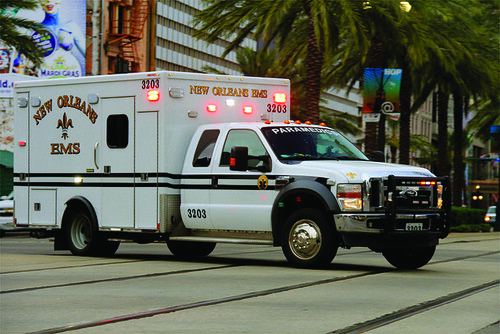NOEMS, Acadian provide emergency services to campus
October 21, 2015
Tulane Emergency Medical Services was suspended Sept. 4. due to the ongoing conduct investigation and formal review of the organization’s operations. Without TEMS, students now depend on non-Tulane affiliated emergency service providers that present new financial obligations and methods of operation.
TEMS operated as a free emergency service provider. In its absence, New Orleans Emergency Medical Services and Acadian Ambulance Service have taken TEMS’ place, requiring students to pay for any services received. These service charges come from the EMS provider, and the amount charged varies greatly depending on the services provided and the patient’s insurance plan.
According to TEMS statistics, TEMS saved patients an estimated total billing average of $350,634 during the 2013-2014 school year. The total billing average is calculated from an estimated billing amount for each TEMS response, based on how much a regular ambulance service would cost.
To account for the financial changes, the Tulane Student Health Center will be offering billing assistance through insurance specialists.
“Tulane recognizes that it is not ideal that students will get a bill for the EMS services that they receive,” Assistant Vice President for Campus Health Scott Tims said. “We will work with students to help them file bills because a lot of the time EMS doesn’t give information filed for you [and] I know that can be difficult for students to figure out on their own sometimes.”
Because TEMS was an on-campus medical service, patients typically experienced a fast response time. According to TEMS statistics, during the 2013-14 school year, TEMS responded, on average, within six minutes.
New Orleans Emergency Medical Services provides for the entire Orleans Parish, East Bank and West Bank and has anywhere from five- to 10-minute response times during peak operating hours. Due to the large area NOEMS serves and isolated incidents, criticism rises around slow NOEMS response times compared to TEMS.
“I think slower call responses are the downside to [NOEMS],” Tims said. “But, there’s not much we can do about that [and] the response times have overall not been overly long or so long that somebody’s life was in danger.”
Tulane has called and reported any incidents of slow call response times with NOEMS.
NOEMS has a call mutual aid protocol. Mutual aid allows NOEMS to activate other ambulance services when NOEMS’ response times are longer than deemed safe. NOEMS can activate other ambulances such as Acadian Ambulance, A-MED, East Jefferson EMS and West Jefferson EMS. Tulane has a private agreement with Acadian, in which if NOEMS is overwhelmed with calls, Tulane can activate Acadian Ambulance directly.
“There is always [an] ambulance available, and I don’t think you will see that much of a difference in response times for [NOEMS] versus TEMS,” Belcher said.
As with TEMS calls, students are encouraged to call TUPD when seeking emergency medical services and TUPD will respond to emergency calls along with the emergency medical service provider. Under NOEMS the students will receive the level of medical amnesty they received under the Responsible Action Protocol while TEMS was in service.
“A lot of people thought that if TEMS goes away, amnesty goes away but they are totally separate functions,” Tims said.
Additionally, outside emergency medical providers typically receive higher levels of training than TEMS members received.
TEMS is a Basic Life Support service and its members were certified Emergency Medical Technicians.
NOEMS runs a full Advanced Life Support service and all emergency units are staffed with a minimum of one trained paramedic. Paramedics have certifications in advanced medical life support, advanced cardiac life support, and special certifications in pediatric emergency care.
While TEMS was in operation, NOEMS would respond to calls in TEMS’ service area when the service required was outside the qualifications of TEMS members.
“[NOEMS has] been working with TEMS in a partnership for a very long time, and I think it’s been a really productive partnership,” said Elizabeth Belcher, NOEMS community outreach coordinator and public information officer. “We have always had a wonderful, wonderful working relationship [with TEMS] in the past.”
While TEMS provided services for mental health emergencies, NOEMS does not typically respond to these emergencies.
Following TEMS’ suspension, Tulane contracted with Acadian for mental health emergencies. The agreement allows Tulane to automatically activate Arcadian when a patient needs mental health care.
While in service, TEMS often provided acute care to intramural and club sports players. NOEMS will not provide nonemergency acute care.
“[TEMS] arrived quickly after my injury,” junior Matt Gorbin said. “[TEMS members] were very nice and helpful as they bandaged my ankle because of injury during an intramural game.”
To account for this difference between emergency medical service providers, the Student Health Center has checked the first aid kits accessible to intramural and club sports players.
Despite a shift in the types of situations during students which call emergency medical service, Tims has not noticed a shift in the overall volume of calls made.
“I think for our serious cases students are calling,” Tims said. “I think that TEMS was doing a lot of first aid stuff for when people were playing club sports or intramurals. So, I think that those calls have gone down. But again, that’s not really why you would call an ambulance anyway.”










Leave a Comment